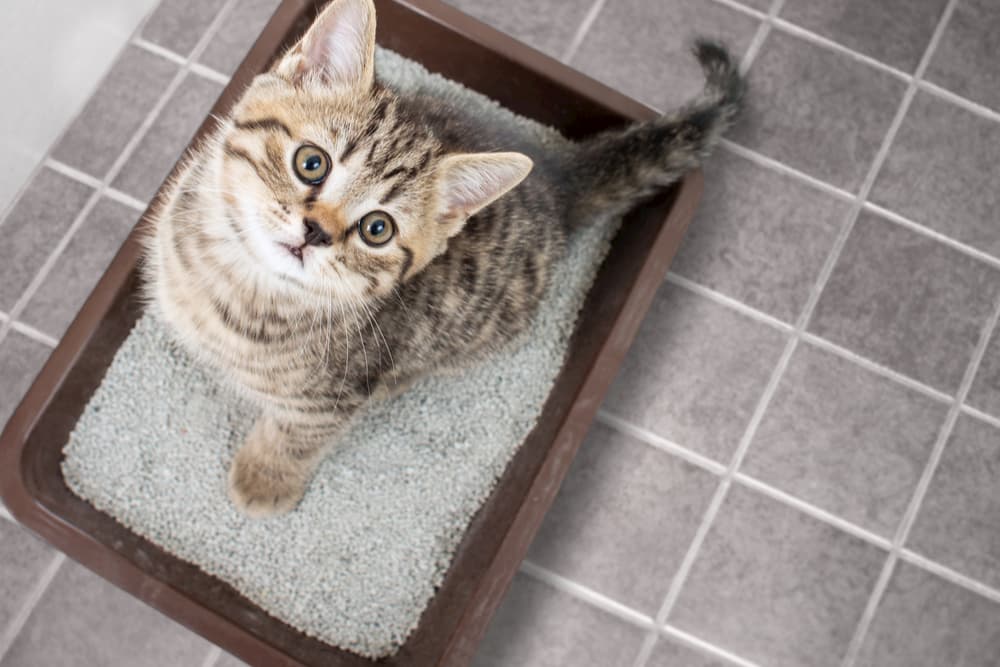Prevent Plumbing Problems: Don't Flush Cat Poop Down Your Toilet - Expert Guidance
Prevent Plumbing Problems: Don't Flush Cat Poop Down Your Toilet - Expert Guidance
Blog Article
Just about everyone seems to have their personal conception involving Don’t flush cat feces down the toilet.

Introduction
As pet cat proprietors, it's important to be mindful of just how we dispose of our feline pals' waste. While it may seem convenient to flush cat poop down the bathroom, this method can have destructive consequences for both the setting and human health and wellness.
Ecological Impact
Purging pet cat poop presents harmful pathogens and parasites right into the water, posturing a significant risk to aquatic communities. These contaminants can adversely influence aquatic life and concession water quality.
Health Risks
Along with ecological issues, purging feline waste can likewise pose wellness dangers to humans. Cat feces might contain Toxoplasma gondii, a bloodsucker that can cause toxoplasmosis-- a possibly serious illness, specifically for expecting women and individuals with weakened immune systems.
Alternatives to Flushing
Thankfully, there are more secure and more accountable means to take care of cat poop. Think about the adhering to alternatives:
1. Scoop and Dispose in Trash
One of the most common method of taking care of cat poop is to scoop it into a naturally degradable bag and toss it in the garbage. Be sure to use a devoted trash scoop and get rid of the waste immediately.
2. Use Biodegradable Litter
Select eco-friendly feline trash made from materials such as corn or wheat. These litters are environmentally friendly and can be safely disposed of in the garbage.
3. Bury in the Yard
If you have a backyard, think about burying feline waste in a designated area far from vegetable gardens and water sources. Make sure to dig deep enough to stop contamination of groundwater.
4. Mount a Pet Waste Disposal System
Invest in a pet dog waste disposal system specifically designed for pet cat waste. These systems utilize enzymes to break down the waste, minimizing smell and ecological influence.
Conclusion
Liable animal possession prolongs beyond supplying food and sanctuary-- it additionally involves appropriate waste management. By avoiding flushing pet cat poop down the bathroom and choosing alternative disposal approaches, we can reduce our environmental impact and protect human health and wellness.
Why You Should Never Flush Cat Poop Down the Toilet
A rose by any other name might smell as sweet, but not all poop is created equal. Toilets, and our sewage systems, are designed for human excrement, not animal waste. It might seem like it couldn’t hurt to toss cat feces into the loo, but it’s not a good idea to flush cat poop in the toilet.
First and foremost, assuming your cat uses a litter box, any waste is going to have litter on it. And even the smallest amount of litter can wreak havoc on plumbing.
Over time, small amounts build up, filling up your septic system. Most litter sold today is clumping; it is made from a type of clay that hardens when it gets wet. Ever tried to scrape old clumps from the bottom of a litter box? You know just how cement-hard it can get!
Now imagine just a small clump of that stuck in your pipes. A simple de-clogger like Drano isn’t going to cut it. And that means it’s going to cost you big time to fix it.
Parasitic Contamination
Believe it or not, your healthy kitty may be harboring a nasty parasite. Only cats excrete Toxoplasma in their feces. Yet it rarely causes serious health issues in the cats that are infected. Most people will be fine too if infected. Only pregnant women and people with compromised immune systems are at risk. (If you’ve ever heard how women who are expecting are excused from litter cleaning duty, Toxoplasma is why.)
But other animals may have a problem if infected with the parasite. And human water treatment systems aren’t designed to handle it. As a result, the systems don’t remove the parasite before discharging wastewater into local waterways. Fish, shellfish, and other marine life — otters in particular — are susceptible to toxoplasma. If exposed, most will end up with brain damage and many will die.
Depending on the species of fish, they may end up on someone’s fish hook and, ultimately on someone’s dinner plate. If that someone has a chronic illness, they’re at risk.
Skip the Toilet Training
We know there are folks out there who like to toilet train their cats. And we give them props, it takes a lot of work. But thanks to the toxoplasma, it’s not a good idea.

Do you like more info about How to Dispose of Cat Poop and Litter Without Plastic Bags? Try leaving a review down the page. We will be delighted to find out your opinions about this entry. In hopes that you come back again in the near future. Sharing is caring. Helping people is fun. Thanks so much for taking the time to read it.
Schedule Service Report this page